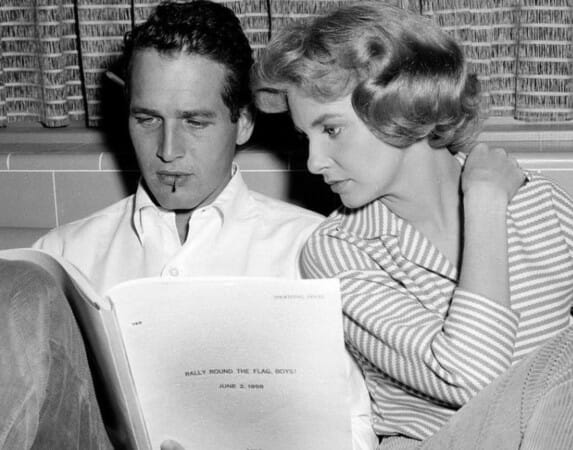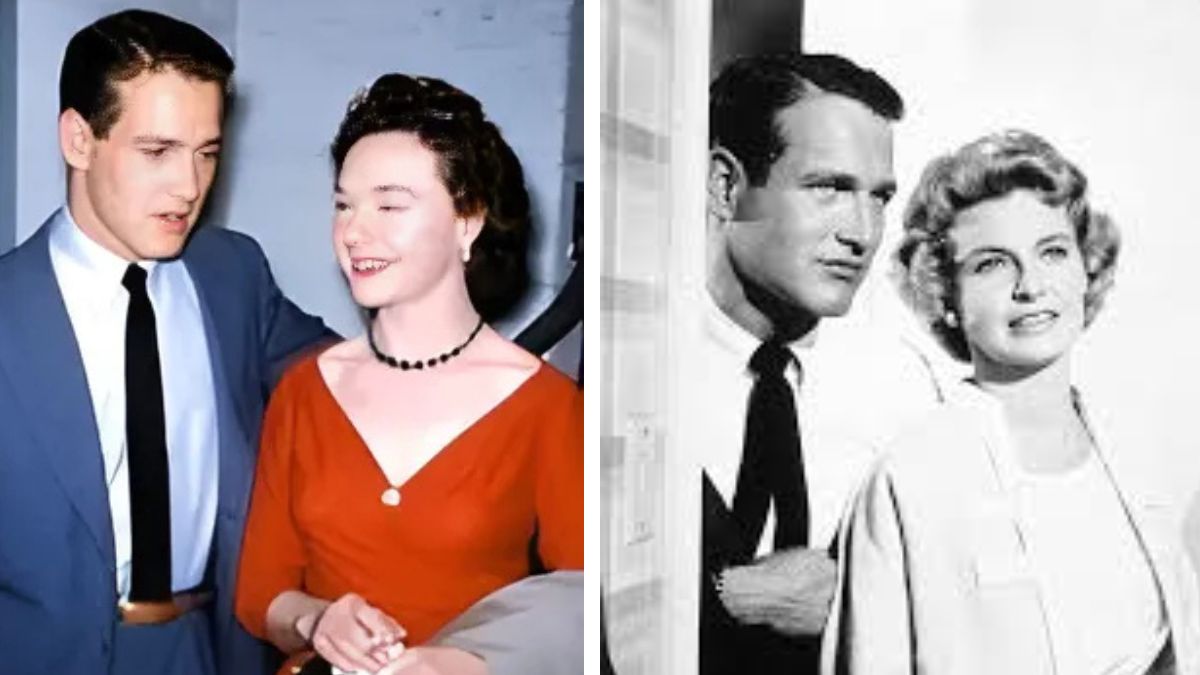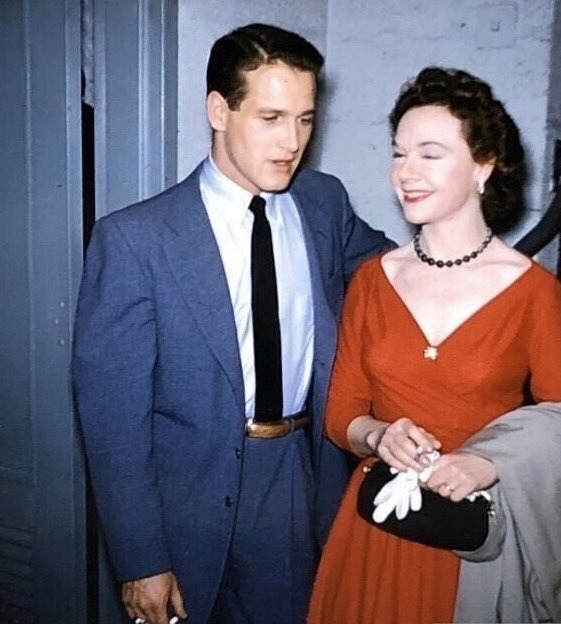Jackie: A Poignant Journey Through Grief And Legacy
The name "Jackie" evokes an immediate image for many: Jacqueline Kennedy, the iconic First Lady whose grace and resilience captivated a nation, especially in the wake of unimaginable tragedy. While the "Data Kalimat" provided doesn't refer to "Jackie Witte," it paints a vivid picture of the critically acclaimed 2016 historical drama film, "Jackie," which delves into the harrowing week following President John F. Kennedy's assassination. This film, directed by Pablo Larraín and penned by Noah Oppenheim, offers a deeply intimate and raw portrayal of a woman grappling with profound grief, public scrutiny, and the immense pressure to define her husband's enduring legacy.
More than just a historical recount, "Jackie" is a psychological study, a cinematic exploration of a woman's fight for faith and dignity amidst a national crisis. Starring the Oscar® winner Natalie Portman as Jacqueline Kennedy, the film meticulously reconstructs the moments immediately before, during, and after the assassination, presenting a fragmented yet powerful narrative of a First Lady's private anguish and public resolve. It's a testament to the human spirit's capacity to endure, console, and ultimately, shape history.
Daftar Isi
- The Premise of Jackie: A Glimpse into Grief
- Natalie Portman's Transformative Performance as Jackie
- Pablo Larraín's Vision and Noah Oppenheim's Script
- Jacqueline Kennedy: A Biographical Overview
- The Weight of Legacy: Shaping History's Narrative
- Visuals, Sound, and Atmosphere: Crafting a Somber Mood
- Critical Acclaim and Impact of Jackie
- Beyond the Screen: The Enduring Fascination with Jacqueline Kennedy
The Premise of Jackie: A Glimpse into Grief
The film "Jackie" (2016) isn't a conventional biopic. Instead, it offers a tightly focused lens on the immediate aftermath of President John F. Kennedy's assassination on November 22, 1963. The narrative is largely framed around an interview Jacqueline Kennedy granted to a journalist (played by Billy Crudup) a mere week after the tragic event. This interview, a real historical occurrence, serves as the backbone for the film's non-linear exploration of Jackie's inner turmoil and her outward determination.
- Fairchild Actress
- Billy Wirth
- Luis R Conriquez Height And Weight
- Is Dana Perinos Husband Okay
- Instagram Daphne Oz
As the "Data Kalimat" states, the film chronicles how "first lady Jacqueline Kennedy onassis fights through grief and trauma to regain her faith, console her children, and" protect her husband's image. We see her navigating the chaotic transition of power, planning a state funeral that defied protocol but mirrored her vision of a lasting legacy, and confronting the stark reality of her new life. The movie portrays the profound shock and sorrow that permeated the White House and the nation, with Jackie at its epicenter, striving to maintain composure while her world crumbled around her. It's a powerful depiction of a woman under immense pressure, tasked with both personal mourning and national leadership in a time of crisis.
Natalie Portman's Transformative Performance as Jackie
At the heart of "Jackie" lies Natalie Portman's mesmerizing portrayal of Jacqueline Kennedy. Her performance is widely regarded as one of her career's most challenging and successful, earning her an Academy Award nomination for Best Actress. The "Data Kalimat" highlights this, stating, "Oscar® winner natalie portman leads an acclaimed cast in this powerfully stirring drama as first lady jacqueline kennedy, As she grapples with unimaginable grief and trauma."
Portman meticulously captured Jackie's distinctive voice, mannerisms, and elegant posture, but more importantly, she delved deep into the character's emotional landscape. She conveyed the raw agony of loss, the steely resolve to protect her family and legacy, and the quiet dignity that defined Jacqueline Kennedy even in her darkest hour. Her performance is not merely an imitation but a profound embodiment of a woman caught between her private sorrow and her public duty. The film relies heavily on her ability to convey the internal struggle, making her performance central to the movie's impact and its exploration of grief and resilience.
- Lola Consuelos Theyoungestyung Latest
- %CF%84%CE%B6%CE%B1%CE%BA%CE%BB%CF%8D%CE%BD %CE%BC%CF%80%CE%AD%CE%B6%CE%BF%CF%82
- Linda Kasabian
- How Did Ana Navarro And Al C%C3%A1rdenas Meet
- Dustin Hurt Death
Pablo Larraín's Vision and Noah Oppenheim's Script
The unique artistic vision of "Jackie" is a testament to the collaboration between director Pablo Larraín and writer Noah Oppenheim. The "Data Kalimat" explicitly notes, "Jackie is a 2016 historical drama film directed by pablo larraín and written by noah oppenheim." Larraín, known for his unconventional approach to biopics, eschews a linear narrative, instead presenting a mosaic of moments that illuminate Jackie's psychological state.
Oppenheim's script is sharp and insightful, often using the interview format to reveal Jackie's curated public persona versus her raw, private thoughts. The "Data Kalimat" mentions a crucial scene: "Jackie asks to read the journalists notes and then begins making changes, While she writes in his journal, he tells her jackie has left a mark on the country, which is going through a somber." This scene perfectly encapsulates the film's theme: Jackie's active role in shaping her own narrative and, by extension, her husband's legacy. Larraín's direction, characterized by close-ups, haunting music, and a dreamlike quality, pulls the audience into Jackie's isolated world, making the experience intensely personal and deeply unsettling. The film's structure allows for a nuanced exploration of memory, truth, and the construction of historical myth.
Jacqueline Kennedy: A Biographical Overview
To fully appreciate the film "Jackie," it's essential to understand the woman at its center: Jacqueline Lee Bouvier Kennedy Onassis. Born into privilege and educated with an emphasis on culture and refinement, Jackie was more than just a fashion icon; she was a woman of intellect, strength, and an acute awareness of her role in history. Her life, though often viewed through the lens of tragedy, was also marked by significant achievements and a profound influence on American culture and politics.
Before becoming First Lady, Jackie worked as an inquiring photographer for the Washington Times-Herald. Her marriage to then-Congressman John F. Kennedy in 1953 thrust her into the national spotlight. As First Lady, she captivated the world with her elegance, intelligence, and dedication to preserving American history and culture. She famously undertook a major restoration of the White House, transforming it into a living museum and inviting the public to witness its beauty through a televised tour. Her efforts elevated the role of First Lady and left an indelible mark on the nation's cultural landscape. The film "Jackie" captures her at the most vulnerable yet defining moment of her life, showcasing her transformation from a grieving widow to a determined architect of legacy.
Personal Data: Jacqueline Kennedy
| Attribute | Detail |
|---|---|
| Full Name | Jacqueline Lee Bouvier Kennedy Onassis |
| Born | July 28, 1929, Southampton, New York, U.S. |
| Died | May 19, 1994, New York City, New York, U.S. |
| Spouses | John F. Kennedy (m. 1953; d. 1963), Aristotle Onassis (m. 1968; d. 1975) |
| Children | Caroline Kennedy, John F. Kennedy Jr. (Patrick Bouvier Kennedy and Arabella Kennedy died in infancy) |
| Education | Vassar College, George Washington University (B.A. in French Literature) |
| Role | First Lady of the United States (1961–1963) |
| Notable Achievements | White House restoration, cultural ambassador, guardian of JFK's legacy |
The Weight of Legacy: Shaping History's Narrative
One of the most compelling aspects of "Jackie" is its focus on how Jacqueline Kennedy, even in her deepest sorrow, strategically worked to shape her husband's legacy. The "Data Kalimat" states, "To honor her husband's legacy, first lady jacqueline kennedy allows a reporter to interview her a mere week after the president's assassination." This act was not merely an emotional outpouring but a calculated move to ensure that JFK's presidency would be remembered not for its abrupt end, but for its promise and ideals.
The film brilliantly illustrates Jackie's determination to control the narrative. She meticulously plans the funeral procession, insisting on a public display that echoed Abraham Lincoln's, understanding the symbolic power of such an event. She fights against the mundane details of transition, such as moving out of the White House, because she understands that these actions contribute to the public's perception of the Kennedy era. Her insistence on the "Camelot" myth, a romanticized vision of JFK's presidency, was a deliberate effort to imbue his short time in office with a sense of grandeur and historical importance. "Jackie" shows her as a formidable figure, using her grief not as a weakness, but as a catalyst for an extraordinary act of historical preservation.
Visuals, Sound, and Atmosphere: Crafting a Somber Mood
The aesthetic elements of "Jackie" are crucial to its immersive and emotionally resonant experience. Larraín's directorial choices, coupled with the film's cinematography and score, create a unique atmosphere that is both somber and intensely intimate. The film's visual style often employs close-ups on Portman's face, drawing the audience into Jackie's internal world of pain and reflection. The color palette is often muted, reflecting the period's somber mood and the black attire Jackie wore for weeks.
Mica Levi's haunting and dissonant score is a character in itself, perfectly mirroring Jackie's fragmented mental state and the unsettling nature of the events. It's a score that lingers, adding layers of tension and melancholy without ever becoming overbearing. The meticulous costume design and set recreation also play a vital role, transporting viewers back to the early 1960s and the very specific world of the Kennedy White House. Every detail, from Jackie's iconic pink Chanel suit to the Oval Office's decor, contributes to the film's authenticity and its ability to evoke a specific historical moment and the emotional weight carried by its central figure. This careful crafting of atmosphere ensures that the film "Jackie" is not just watched, but felt.
Critical Acclaim and Impact of Jackie
"Jackie" was met with widespread critical acclaim upon its release, particularly for Natalie Portman's performance and Pablo Larraín's distinctive direction. The "Data Kalimat" briefly notes, "Watch trailers & learn more," hinting at the film's public presence and critical reception. Beyond Portman's Oscar nomination, the film also received nominations for Best Original Score and Best Costume Design, underscoring its artistic and technical achievements.
Critics praised the film for its fresh perspective on a well-known historical event, moving beyond mere facts to explore the psychological impact of trauma and the burden of public grief. It was lauded for its boldness in portraying Jacqueline Kennedy not just as a symbol, but as a complex, intelligent, and deeply human individual. The film sparked renewed interest in Jackie's life and her often-underestimated role in shaping the Kennedy legacy. Its impact lies in its ability to humanize an icon, inviting audiences to empathize with her struggle and admire her resilience. "Jackie" stands as a significant contribution to the genre of historical drama, demonstrating how artistic interpretation can shed new light on historical figures.
Beyond the Screen: The Enduring Fascination with Jacqueline Kennedy
The enduring appeal of "Jackie" (the film) and the woman it portrays, Jacqueline Kennedy, speaks volumes about her indelible mark on history and popular culture. Even decades after her time in the White House, her story continues to captivate, inspiring numerous books, documentaries, and films. The fascination stems from a combination of factors: her elegance, her enigmatic persona, and her profound strength in the face of national tragedy.
The film "Jackie" contributes to this ongoing fascination by offering a unique, intimate lens into her most challenging week. It allows viewers to witness her private moments of despair and her public acts of defiance and determination. Her story resonates because it is one of resilience, of a woman who, despite unimaginable loss, found the strength to protect her family, define a legacy, and maintain her dignity under the most intense scrutiny. This portrayal helps us understand why "Jackie" has left such a profound mark on the country, as the journalist in the film aptly noted. Her influence extends beyond fashion and style; it encompasses a powerful example of grace under pressure and the enduring power of a carefully constructed public image.
The Role of Digital Platforms in Discovering Films Like Jackie
In today's digital age, platforms like YouTube play a significant role in how audiences discover, learn about, and engage with films like "Jackie." The "Data Kalimat" provides several insights into YouTube's functionalities, which are highly relevant to film consumption:
- Trailers and Information: As mentioned, "Watch trailers & learn more" is a common call to action on YouTube, allowing potential viewers to get a glimpse of the film's tone and performance.
- Accessibility: "تنزيل تطبيق YouTube يمكنك تنزيل تطبيق YouTube للاستفادة من تجربة مشاهدة أفضل على هاتفك الذكي أو جهازك اللوحي أو التلفزيون الذكي أو وحدة تحكّم الألعاب أو جهاز بث الوسائط." This highlights how easy it is to access content, including film clips, interviews, and reviews, on various devices.
- Search and Discovery: "How youtube search works youtube has a tremendous amount of video content — over 500 hours are uploaded every minute, Without a robust search function, finding what you need." This underscores YouTube's role as a powerful search engine for film-related content, helping users find specific scenes, analyses, or behind-the-scenes footage of "Jackie."
- Quality and Playback: "Check the youtube video’s resolution and the recommended speed needed to play the video, The table below shows the approximate speeds recommended to play each video resolution." This technical detail ensures a smooth viewing experience, crucial for appreciating the visual and auditory nuances of a film like "Jackie."
These features collectively make platforms like YouTube indispensable tools for both promoting and consuming cinematic works, allowing audiences to delve deeper into films and the historical contexts they represent.
Kesimpulan
The film "Jackie" stands as a powerful and deeply affecting portrait of Jacqueline Kennedy in the most trying week of her life. Through Pablo Larraín's unique direction and Noah Oppenheim's insightful script, brought to life by Natalie Portman's extraordinary performance, the movie transcends a simple historical recounting. It becomes a profound exploration of grief, resilience, and the deliberate construction of a national legacy. The film reminds us of the immense personal burden carried by public figures and the quiet strength required to navigate both private sorrow and public duty.
If you are captivated by historical dramas that delve into the human psyche, or if you wish to gain a deeper understanding of one of America's most iconic First Ladies, "Jackie" is an essential watch. Its artistic merit and emotional depth make it a film that resonates long after the credits roll. Have you seen "Jackie"? Share your thoughts on Natalie Portman's portrayal or what aspects of Jacqueline Kennedy's story you find most compelling in the comments below. For more insights into historical films and their impact, explore other articles on our site.
- Walking Dead James Heltibridle
- Jim Hanks Net Worth
- Rebecca Bloom
- Dafne Keen Net Worth
- Connie Francis %C3%A9poux

Jackie Witte: The Revealing Story of Paul Newman’s First Wife

All About Jackie Witte: The Untold Story of Paul Newman’s First Wife

Paul Newman Ex-Wife: Meet Jackie Witte - ABTC